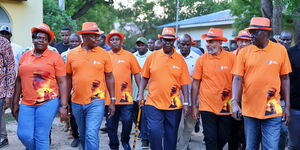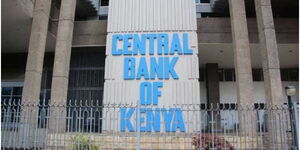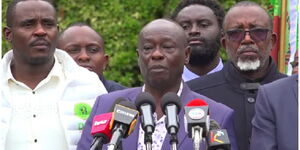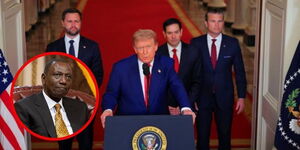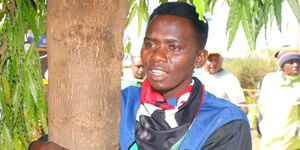The new-look UN-backed Gang Suppression Force (GSF) in Haiti is getting the better of gangs, and it is only a matter of time before criminal networks are completely dismantled, according to Kenyan Force Commander Godfrey Otunge.
Otunge, in a statement on Wednesday, November 19, revealed the reasoning behind the transition from Multinational Security Support Mission (MSSM) to GSF, saying it was a comprehensive restructuring aimed solely at dismantling the networks.
According to the Kenyan commander, the joint operations between the Haitian National Police (PNH), the Armed Forces of Haiti (FAd’H), and the GSF have proven to be successful so far, since the three factions were adequately equipped to conduct targeted, intelligence-led operations and patrols in key areas.
“This was not a cosmetic shift or a change in name. It is a complete reorganisation of Haiti’s security machinery,” Otunge said.
“We have mobilised all operational assets on land, at sea, and in the air. Our objective is clear: restore peace, protect communities, and ensure that every Haitian can live without fear,” he added.
Otunge further described the recent gang threats and public displays of defiance as the last kicks of a dying horse, reiterating that it was a sign of desperation from gangs, not strength. Combined forces have since gained momentum and disrupted networks, seized weapons and "neutralised resisting armed elements".
He went on, "There is no safe haven left. This is not rhetoric; it is what is happening on the ground today and now.”
The formation of the GSF came after a United Nations Security Council vote on September 30, which approved Resolution 2783 to transition the MSS, led by Kenya, to a more robust and heavily armed stabilisation force.
During the vote, 12 members voted in favour, while the likes of Russia, China and Pakistan decided to abstain.
Kenya had initially spearheaded the MSS since 2023, deploying at least 735 police officers to back the Haiti mission. At least three Kenyan officers have been confirmed to have lost their lives during the mission, albeit in different circumstances.
While the GSF formation effectively ended Kenya's leadership in the mission, the government continues to contribute personnel under the new structure.
Under the new structure, the GSF is authorised to operate for 12 months with logistical and political backing from a UN Support Office and the Organisation of American States (OAS).
US Ambassador to the UN Mike Waltz exuded confidence that the adoption of the GSF gave Haiti renewed hope, stating, “That hope has been slipping away as gangs expanded their territory, raped, pillaged, murdered, and terrorised the Haitian population. The very existence of the Haitian state is at stake."



